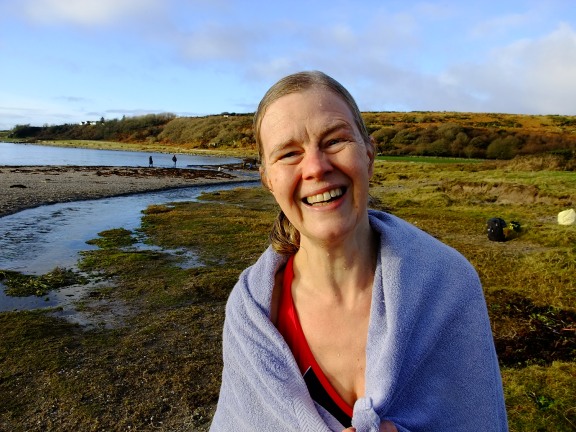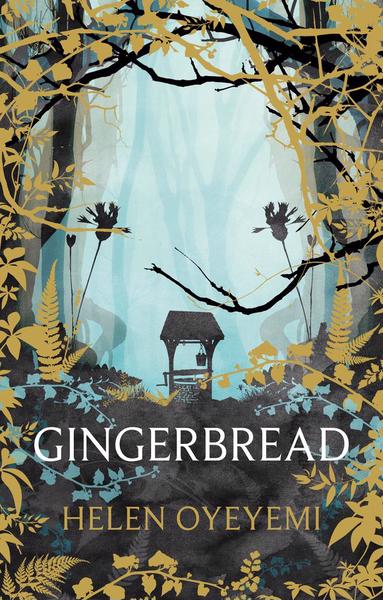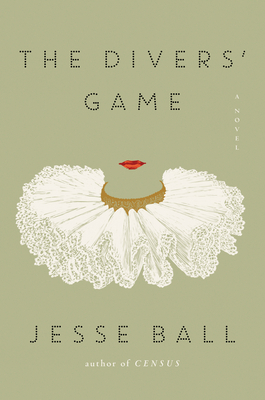
At the time of writing (Saturday morning) I am halfway through reading Ben Lerner’s The Topeka School, and if I finish it, as I hope to, by the time of posting then I will have read eighty-five books this year. Not a colossal number by some marathon readers’ standards (you know who you are!) but good enough. Enough to be left with the sense that the year has provided something in the way of progress and of discovery. Enough to feel that I am about to enter 2020 knowing more about myself as a writer than I did twelve months ago. Reading, for me, has always been about that: the sense of community and communality with other writers, the being reminded of what we’re doing and why we do it. Now, perhaps more than at any other time in my life, I look upon writing as a vocation, and not just writing but everything that goes with it: thinking, reflecting, engaging with ideas and above all reading. It’s a serious business, a business of personal dedication, a truth that resists defamation as it resists erosion. It is this I hold to as we enter the next decade, with all its challenges.
One thing I have decided not to do this year is to set myself any specific reading goals for the year to come. Chief among bookish pleasures through the month of December are the various end-of-year reading lists, videos and podcasts put out by reviewers, readers and critics, wrapping up old reading projects and detailing their upcoming reading plans. As many of these same readers discover, even the best laid of bookish plans are apt to fall by the wayside when confronted by time. Nor is this a simple matter of being seduced by newer, potentially more exciting titles. For me at least it has more to do with the fact that my reading evolves: each book I read has a knock-on effect on the next, has a direct bearing upon subsequent reading choices, and so I might often find – I do often find – that the reasons for setting a particular reading goal as much as the goal itself no longer feel relevant. This can feel frustrating but it is exciting too – that sense of discovery again, the feeling that you are being remade as a reader even as you read.
I know I am bound to be sucked into some prize-reading projects at some point – I am particularly looking forward to the release of the Republic of Consciousness Prize longlist in January (an energising and inspiring way to begin any year), the Gordon Burn Prize longlist in May and the Goldsmith’s Prize list beyond that. I enjoy book prizes not through any misplaced excitement at guessing the winner – the very notion of ‘winning’ in literature is a ridiculous one, and potentially harmful – but because of the discussion they generate, and because the particular focus of certain awards is interesting to me. They help my reading, in other words, even if only to push it in the opposite direction, they inspire debate. But I’m not going to be rigid about it: if I find myself losing interest in an awards shortlist, or if I don’t have the time, or if something more relevant presents itself, then that’s fine. There is always more to read.
If I had to sum up my 2019 as a reading year, I’d describe it as oddly circular. You remember the hideous sequence in The Blair Witch Project where the three doomed students spend an entire day walking in a complete circle? My reading year has been something like that but (I hasten to add) in a good way. I find certain ideas coalescing, certain ambitions becoming cemented, certain interests being validated and reaffirmed. I’m working on three separate writing projects at the moment, a novel and two distinct pieces of creative non-fiction, each of which alternately feeds into and stimulates the other, the entire process stoked and bolstered by reading, and reading is rocket fuel. These three projects are my most personal to date, and the most challenging, which is why I am excited by them. There is a fear factor, but fear, at least when it comes to writing, is another brand of rocket fuel.
Since 2012, I’ve been in the habit of listing and making brief notes on all the books I read in the given year, as well as allocating to each a mark out of ten. These scores are arbitrary and personal, as likely to be affected by what was going on in my life or most especially in my writing when I read a book as by how far a particular title turned out to accord with my bookish needs or prejudices at the time. The lists are interesting to look back on though, especially over time as patterns emerge and themes repeat. For my best books of 2019, I’ve decided to reveal the nine titles I gave a 10/10. I had no plans to do this at the start of the year, so there has been no pre-calculation involved, and I have resisted the temptation to up the scores of certain titles just to include them here, strong though that temptation has turned out to be. (There are ten 9s on my list, any of which might have been a 10 on a different day.)
Here, in the order in which I read them, are my 9 10s of 19:
Die, My Love by Ariana Harwicz. Reading Harwicz is like mainlining pure language. Her use of metaphor, her creative juxtaposition of particular images and ideas brings her prose so close to poetry it makes no difference. Her sheer outspokenness as a writer, her definitive abandonment of traditional narrative form, her willingness to break all kinds of taboos makes this novel seem almost illicit, a secret code for writers and for women writers especially. Harwicz’s follow-up, Feebleminded, which was published in English translation this May, is even more insane and just as brilliant (I gave it a 9, if you’re wondering, knocking off a point mainly, I think, because it gave me the literary equivalent of room-spin when I first started reading it. I subsequently discovered that the best, perhaps the only way of reading Harwicz is to down the whole book in a single sitting. This kind of full immersion not only allows the story to free itself from the mass of words, it also – frightening though this may sound – makes the mindsets of the protagonists seem logical and normal!)
As If by Blake Morrison. This is Morrison’s account and personal reflections on his time spent as one of the journalists commissioned to cover the trial of Robert Thompson and Jon Venables, the ten-year-old murderers of toddler James Bulger in 1993. I read this book primarily for research but as a work of true crime, as a personal enquiry into the nature of violence and the nature of the British media I cannot recommend Morrison’s work enough. Incredible writing, important insights. A very tough reading experience but absolutely necessary. I shall be reading this again.
Black Car Burning by Helen Mort. I wrote about this novel earlier in the year and love it unequivocally.
The Sing of the Shore by Lucy Wood. I admired Lucy Wood’s debut collection Diving Belles, but for me this 2018 eollection is even stronger. We’re back in Cornwall, but the elements of myth and magic Wood incorporated so seamlessly into Diving Belles have been stripped away, leaving a tougher, harsher-seeming landscape that nonetheless seems to shimmer with aspects of the uncanny. Such a strong book, a natural (southern) counterpoint to the Mort. I’m hoping we’ll hear news of Wood’s next project soon because I’m eager for more of her sensitive, penetrative, unsentimental landscape writing.
I Am Sovereign by Nicola Barker. Pure, unadulterated, mischievous, brilliant, intelligent, tender, human, literary delight.
Slip of a Fish by Amy Arnold. Thinking about this novel now I can’t help seeing how closely, in its way, it compares with the Harwicz. The approach is different – more vulnerable and less combative – but the unsettling subject matter, the unnerving ambiguity and pain of the relationships described, makes this feel almost like a sister narrative. Slip of a Fish is a profoundly impressive debut and I hope we see more from Arnold soon.
The Porpoise by Mark Haddon. I named this book as my ‘Tiny Tim’ in my Christmas Carol book tag, the novel that I feel is deserving of more attention than it has so far received, and I will continue to repeat my puzzlement at why it has commanded so much less than its fair share of debate and discourse in 2019. The Porpoise is a masterclass in the use of myth and fairy tale in postmodern fiction. More than that, it is a heart-pounding story, immersive and interrogative at the same time (a hard trick to pull off). This novel is full of colour and magic, clever twists of both the narrative and literary variety. It also includes what might be the sole legitimate (and literal!) use of a deus ex machina in contemporary fiction. Glorious book. Read it.
Dark Lies the Island by Kevin Barry. I was all set to give this collection a 9 but the final story, set in Berlin, raised the threshold because I found it so moving and resonant. Every story is a gem, though, and Barry looks set to be the kind of writer who will just get better and better. I’ve been saving his Booker-longlisted Night Boat to Tangier to read in early 2020 and I can’t wait.
Leaving the Atocha Station by Ben Lerner. Reading this was like seeing my own thought processes laid bare. Not the substance of the thoughts, or not always – Lerner’s ‘Adam’ is still in his twenties, and a guy – but the way thoughts cross and diverge, coalesce into images, become ideas. The way he writes about becoming acquainted with a second language, the way meaning accrues gradually to words, and sets of words – the way meaning becomes defined, rather in the manner of the initially blurred outlines of a Polaroid photograph – resonated with me particularly as I’ve never come across such an accurate rendition of my own experience. Art, poetry, history, impostor syndrome, the writer’s evolving objective awareness of what will be their material – Leaving The Atocha Station sits beside certain texts I read in 2018 (Greg Baxter’s Munich Airport, Gwendoline Riley’s First Love, Eley Williams’s Attrib, Jenny Offill’s Dept of Speculation) that have been helping to build my courage, confidence and ambition as a writer. I gave Lerner’s follow-up 10:04 a 9, simply in response to the fact that of the two, Leaving the Atocha Station is marginally my favourite. At the time of writing I cannot imagine giving The Topeka School anything less than a 10 [edit 31/12 – yup, it’s a 10]. It’s the kind of novel that defines a career. I’m still struggling to articulate what it is about Lerner’s writing that has affected me so much, so I’ll stop trying for the moment and encourage you to go and listen to Lerner himself in this excellent podcast interview. His ideas about what constitutes autofiction are expressed with clarity and deep practical insight and I loved every minute of what he has to say.
Regular readers of this blog will know I struggle with Christmas, a festival that has become unsure of its identity, hollowed out through commercialism, unrealistic expectations and personal stress, and with December in general, with the light decreasing and the encroachment of, well, Christmas. I’m thinking that next year I might organise a special meal and evening of ghost stories for the solstice as a strategic counterattack – December 21st is like a breath of light and sanity for me, always has been – but in the meantime, this winter has been made easier by my morning runs. Leaving the house each morning at around 7:30, I have seen the light leach back into the sky, the sun rise in a wash of red and blazing orange above the firth. The physical contact with the outside air, the sense of the world as planet has been a matter of spiritual sustenance and renewal. The days have seemed longer, more resilient, and Christmas day itself was made special by taking part in the morning swim at Scalpsie bay. The weather was… cold but incredible, as was the experience as a whole, in fact. I’ve never done a winter swim before and as a first this was unforgettable. Two books also have helped to anchor me through the disappointments and uncertainties of this past month: Under the Rock, by Ben Myers and Ghostland, by Edward Parnell. Both these works evoke and examine ideas about landscape, belonging, grief, creativity, resistance and inclusive heritage that feel powerful and relevant to me and I thank them for being there.
Huge thanks to everyone who has supported me this year, who has read this blog or read The Dollmaker or found interest or joy in any of the books or films I have ranted or raved about. A happy new year to you all, and here’s to new adventures and new directions in the months to come.

